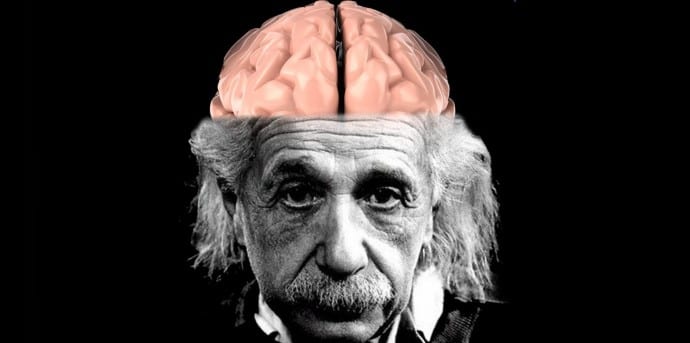Beautiful Minds : How Does a Mathematician’s Brain Differ from That of a Mere Mortal?
How you ever pondered how great mathematicians like Albert Einstein and Stephen Hawking could answer fundamental questions about the Universe? Researchers have been largely debating whether the brain works on math problems using the same mechanism as it does when working out word problems, especially when the two intersect such, as in algebra.
Albert Einstein once said that his mathematical genius had nothing to do with language: “Words and language, whether written or spoken, do not seem to play any part in my thought processes.”
Putting all the debates to rest, now a new study shows that the neural networks used to process mathematics are different from those that are used to process language. The study conducted by researchers from the University Of Paris, France, included 15 high-level mathematicians and 15 high-level academics in other fields who underwent fMRI (functional magnetic resonance imaging) scans. The researchers posed a series of statements to each subject on a range of topics — math and non-math — which participants were asked to identify as “true,” “false” or “meaningless.”
The team’s findings were published in Proceedings of the National Academy of Sciences.
When both groups responded to statements on subjects that had nothing to do with math, the brain scans showed activity in the regions associated with language processing. But when the mathematicians pondered and responded to statements relating to advanced mathematical concepts, certain regions of their brains — the prefrontal, parietal, and inferior temporal regions — lit up, according to Bob Yirka at Medical Xpress.
“[B]ecause they were not trained in higher level math, the same areas in the brains of the non-mathematicians lit up only when asked more general questions about numbers and math formulas,” says Yirka.
In both groups, regions of the brain associated with language processing did not light up when the volunteers were pondering math questions. This indicates that maths is processed in a specific area of the brain, irrespective of how complicated is the question.
So now the real question is whether non-mathematicians can learn to understand high-level math through training, and, if they can, if the same areas start to light up as their understanding increases.
Daniel Ansari, a cognitive neuroscientist from the University of Western Ontario in Canada, who was not a part of the study, summed up this question to Scientific American’s Jordana Cepelewicz.
“Most of us master basic arithmetic, so we’re already recruiting these brain regions, but only a fraction of us go on to do high-level math. We don’t yet know whether becoming a mathematical expert changes the way you do arithmetic or whether learning arithmetic lays out the foundation for acquiring higher-level mathematical concepts.”

